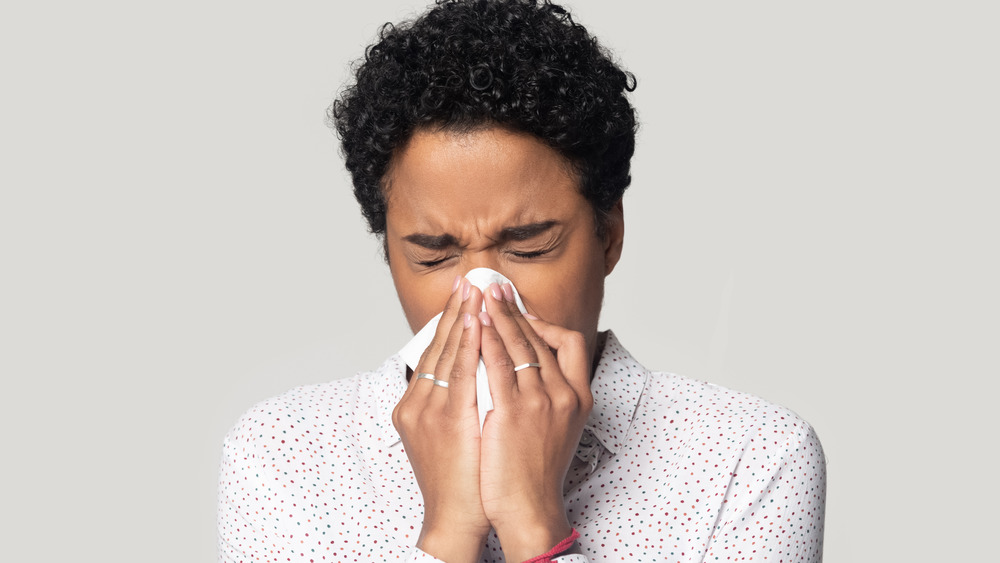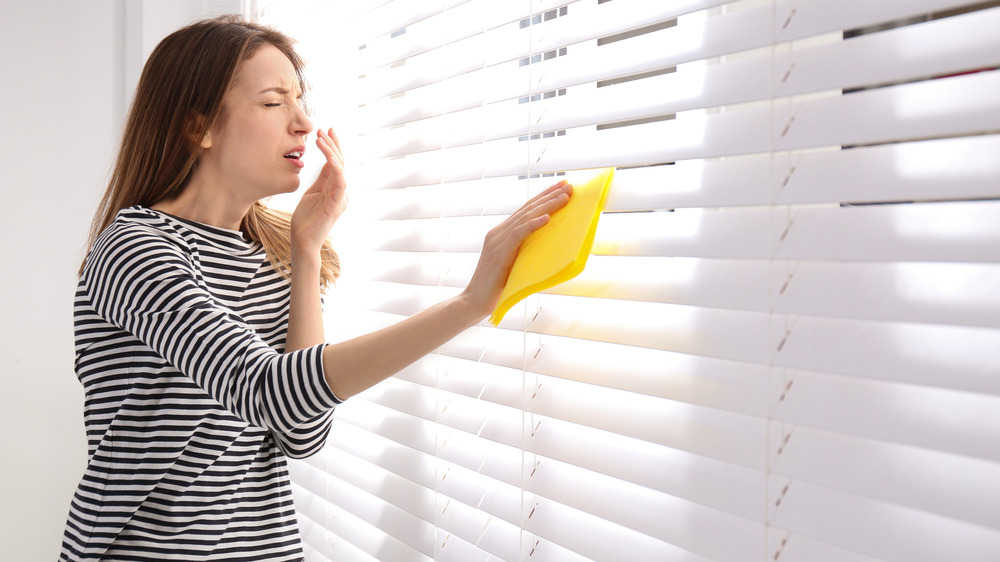What It Really Means When You Wake Up With A Stuffy Nose
If you've ever woken up feeling like you need to clear your sinuses, you're not alone. It's fairly common to feel like you need to blow your nose upon awakening, and there may be some easily remedied causes.
Allergens in the home could be the culprit. According to The Journal of Allergy and Clinical Immunology, one study found that 99 percent of homes tested had at least one allergen in the bedroom, and nearly 75 percent had three to six allergens. Allergens the team tested for included dog and cat dander, dust mites, mice, rats, and cockroaches. Risk factors that increased allergens included pets, pests like bugs or rodents, mobile homes or trailers, older homes, rental homes, and living in rural areas.
To handle allergens, wash your bedding regularly with hot water and clean the bedroom area thoroughly. Avoid wall-to-wall carpeting, if possible, as even vacuuming can't get rid of all dust mite allergens (via Asthma and Allergy Foundation of America). Consider an over-the-counter allergy medication and, if this doesn't help, talk to your doctor about something stronger.
Check your home carefully for this
Seasonal allergies and exposure to mold could also be causing morning stuffiness, according to Healthline. If the former is a problem, then cut back on time spent outdoors when pollen counts are high, or consider an over-the-counter allergy medication. To fight mold, inspect places like the bathroom and basement. Also, look in out-of-the-way places mold could hide, like gutters and garbage cans. If you find mold, a professional will need to be called in to dispose of it and you may need to consult with your doctor about a stronger antihistamine.
Biology can also play a part if you're congested in the morning. Chronic rhinitis is higher among people who smoke and who have gastroesophageal reflux disease (GERD), according to Medical News Today. Polyps can also develop in the nose and sinuses and prevent mucus from draining properly.
If you've been treating congestion with an inhaled nasal decongestant, you can get something called rebound rhinitis. This happens when the medication is used longer than the recommended limit, which is usually three days.
If you're experiencing regular morning congestion and over-the-counter antihistamines aren't helping, be sure to speak with your doctor. There are other options they may recommend that can help.


